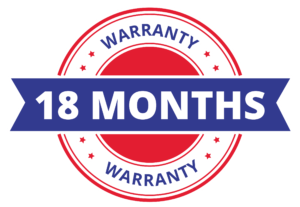Winter weather can be harsh on your vehicle, leading to dead batteries, frozen fluids, and increased wear and tear. Preventative maintenance is key to avoiding costly repairs and keeping your car running smoothly throughout the colder months.
This guide covers essential winter car care tips to help protect your vehicle and prevent expensive breakdowns.
1. Check Your Battery and Charging System
Cold temperatures reduce battery power, making it harder to start your car.
- Test your battery’s charge—replace it if it’s over 3 years old or showing weak performance.
- Clean battery terminals to prevent corrosion and improve connection.
- Keep jumper cables in your car in case of a dead battery emergency.
2. Use the Right Engine Oil
Oil thickens in cold weather, making it harder for your engine to start.
- Check your owner’s manual for winter-grade oil recommendations.
- Many cars perform better in winter with a synthetic or lower-viscosity oil (like 5W-30 instead of 10W-30).
- Get an oil change before winter if your oil is due for a replacement.
3. Monitor Tire Pressure and Tread Depth
Tire pressure drops in cold weather, affecting traction and fuel efficiency.
- Check and maintain tire pressure weekly—use your vehicle’s recommended PSI.
- Inspect tire tread depth using the penny test (if Lincoln’s head is visible, it’s time for new tires).
- Consider switching to winter tires for better grip on snow and ice.
4. Keep Fluids at Proper Levels
Low or frozen fluids can cause engine damage and poor performance.
- Use winter-grade windshield washer fluid to prevent freezing.
- Keep your coolant/antifreeze mixture at the proper ratio to prevent freezing.
- Check brake fluid, power steering fluid, and transmission fluid regularly.
5. Protect Your Windshield and Wipers
Ice buildup and poor visibility can make winter driving dangerous.
- Replace worn-out wiper blades before winter starts.
- Use a windshield cover or park in a garage to prevent ice buildup.
- Keep de-icer spray and an ice scraper in your car.
6. Test Your Heater and Defroster
A malfunctioning heater can leave you cold and uncomfortable on winter drives.
- Turn on your heater and make sure it blows warm air efficiently.
- Check that the defroster clears fog and ice quickly.
- If you notice weak airflow, replace your cabin air filter.
7. Keep Your Gas Tank at Least Half Full
A nearly empty gas tank can cause fuel lines to freeze, leading to starting problems.
- Keep your tank at least half full to prevent condensation and freezing.
- This also ensures you have fuel in case of unexpected delays or emergencies.
8. Carry a Winter Emergency Kit
Winter breakdowns can be dangerous if you’re stranded in freezing temperatures.
Pack an emergency kit with:
- Jumper cables
- Ice scraper and snow brush
- Flashlight with extra batteries
- Blankets and extra warm clothing
- Non-perishable snacks and bottled water
- First-aid kit
- Sand or cat litter (for traction if stuck)
9. Drive Carefully in Winter Conditions
Even with proper maintenance, winter roads require extra caution.
- Slow down—ice and snow reduce traction.
- Increase following distance to allow more stopping time.
- Avoid sudden braking or acceleration to prevent skidding.
Final Thoughts
Winter car care prevents costly repairs and keeps you safe on the road. Taking these simple maintenance steps can save you hundreds or even thousands of dollars in unexpected repairs.
If you’re looking for a reliable winter-ready vehicle with flexible financing, check out our Buy Here Pay Here dealership options today.









